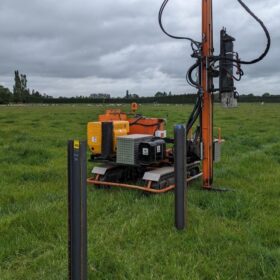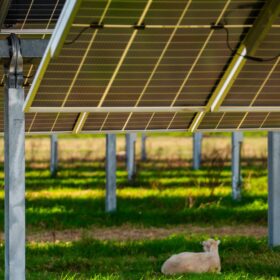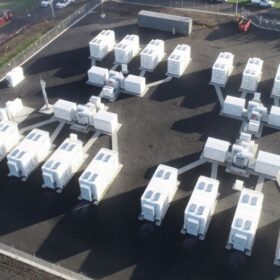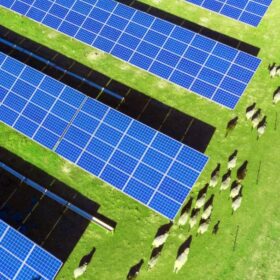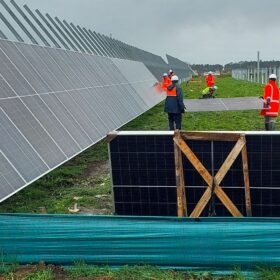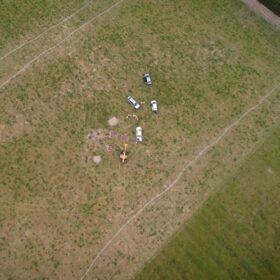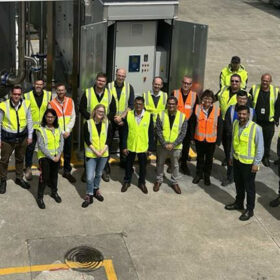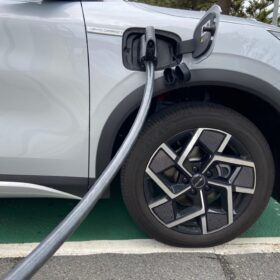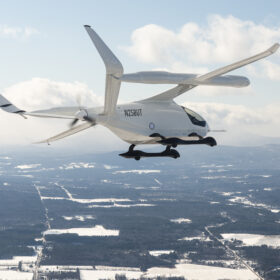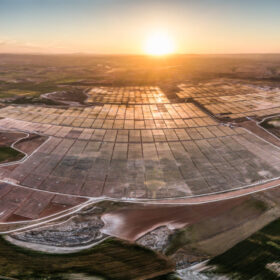Lightyears lands new funds for trio of community-scale solar farms
New Zealand renewables developer Lightyears Solar has announced it will roll out three new community-scale PV farms with a combined capacity of 18 MW after completing a $5.51 million (NZD 6 million) capital raise.
Trina provides one-stop service for NZ solar farm
Trina Solar continues to cement its transition from PV panel manufacturer to a single supplier for solar projects, having delivered both the modules and the tracking system for what is New Zealand’s largest operational solar farm.
New Zealand welcomes first big battery to national grid
New Zealand’s transition to a renewable energy future has taken a significant step forward with the nation’s first grid-scale battery energy storage project now offering injectable reserves to the electricity market for the first time.
Harmony syncs with First Renewables on 150 MW NZ solar farm
Renewable energy infrastructure developer Harmony Energy will team with New Zealand clean energy aspirant First Renewables to build what is expected to be the largest solar farm in the country when it is commissioned in 2026.
NZ developer gets go-ahead for three new solar farms
New Zealand renewables developer Lodestone Energy has received planning consent for three new large-scale solar farms on the country’s South Island as it continues the roll out of a PV strategy that it expects will deliver more than 500 GWh in solar generation.
Genesis, FRV Australia press go on New Zealand solar farm
Early works have commenced on the largest solar farm to reach financial close in New Zealand with Genesis Energy and renewables partner FRV Australia confirming they have finalised the financing for the 47 MW Lauriston Solar Farm.
Fonterra reveals high-temp industrial heat pump
New Zealand-based dairy producer Fonterra has started operating a new heat pump in combination with a solar thermal facility. The hybrid project transforms excess heat from chillers and compressors into a heat source for industrial use.
PEP invests $250 million in electric vehicle charging
Electric vehicle charging in Australia and New Zealand has been given a boost with fund manager Pacific Equity Partners acquiring a majority stake in Australian electric vehicle charging solutions provider EVSE to the tune of $250 million (USD 167 million). The partnership also involves PEP-backed smart metering specialist Intellihub.
Air New Zealand to deliver mail in electric plane
Air New Zealand has ordered an electric five-seat plane to initially use for cargo-only services, with the intention of offering passenger services in future. The company has options to buy two more of the electric planes, with rights reserved on a further 20.
BP to take full control of Lightsource BP
Energy giant BP announced today it would take full ownership of solar and wind energy developer Lightsource BP once a deal – pertaining to the purchase of the remaining renewables company’s shares BP does not own – goes through next year.
